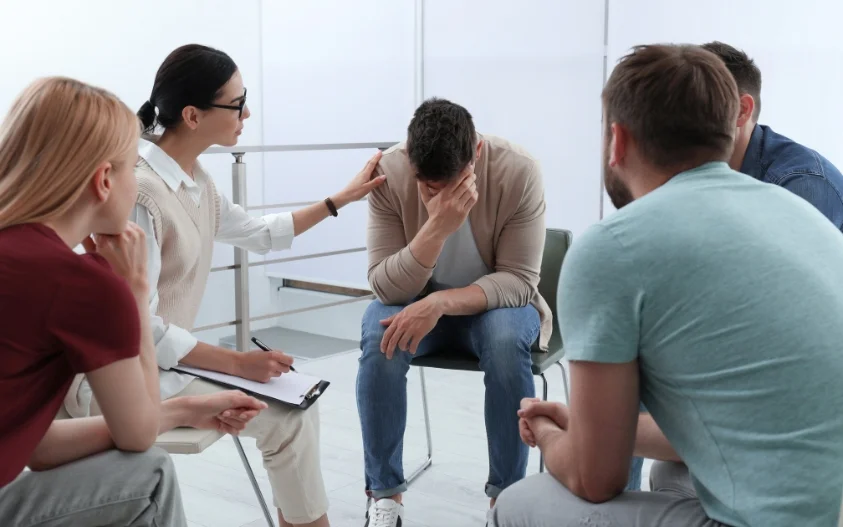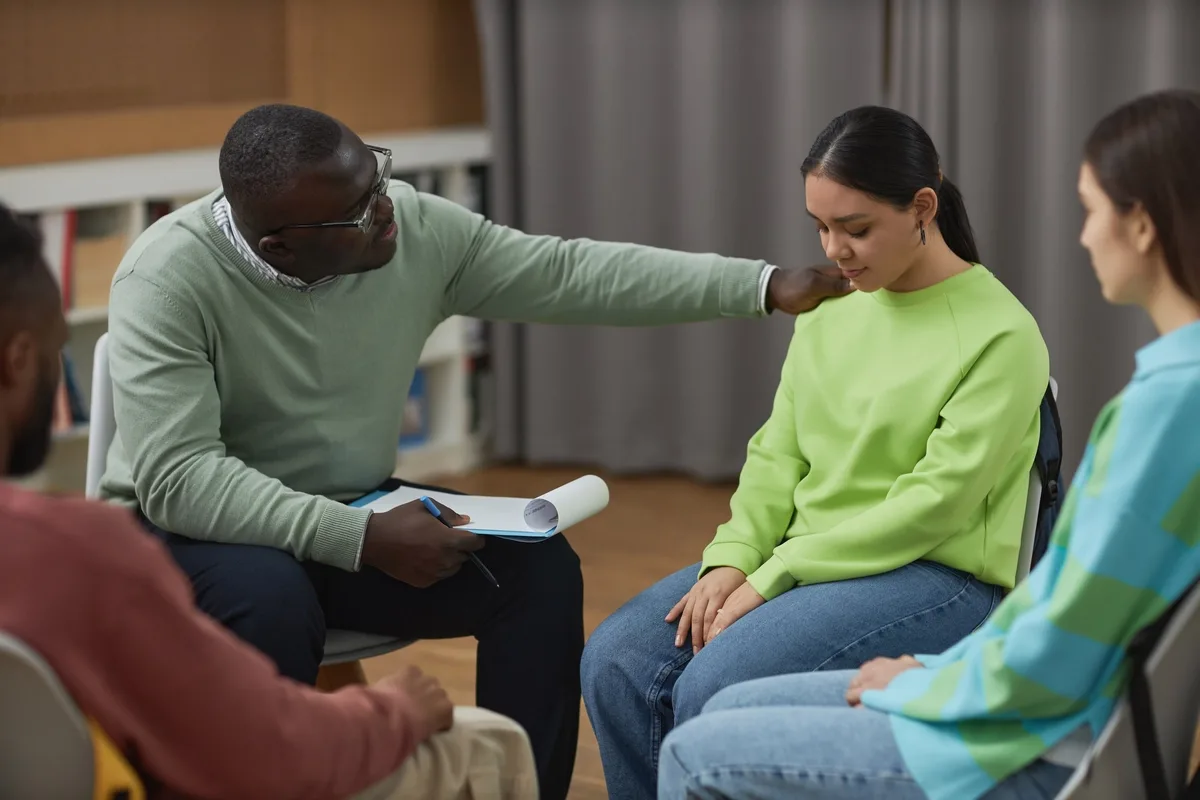24/7 Helpline:
(866) 899-221924/7 Helpline:
(866) 899-2219
Learn more about PTSD Rehab centers in Greenwood
PTSD Rehab in Other Cities

Other Insurance Options

Aetna

UnitedHealth Group

AllWell

Evernorth

Sliding scale payment assistance

Kaiser Permanente

Premera

Self-pay options

Regence

Meritain

Optima

Highmark

Sutter

Lucent

Ambetter

UMR

Anthem

American Behavioral

Absolute Total Care

WellPoint












